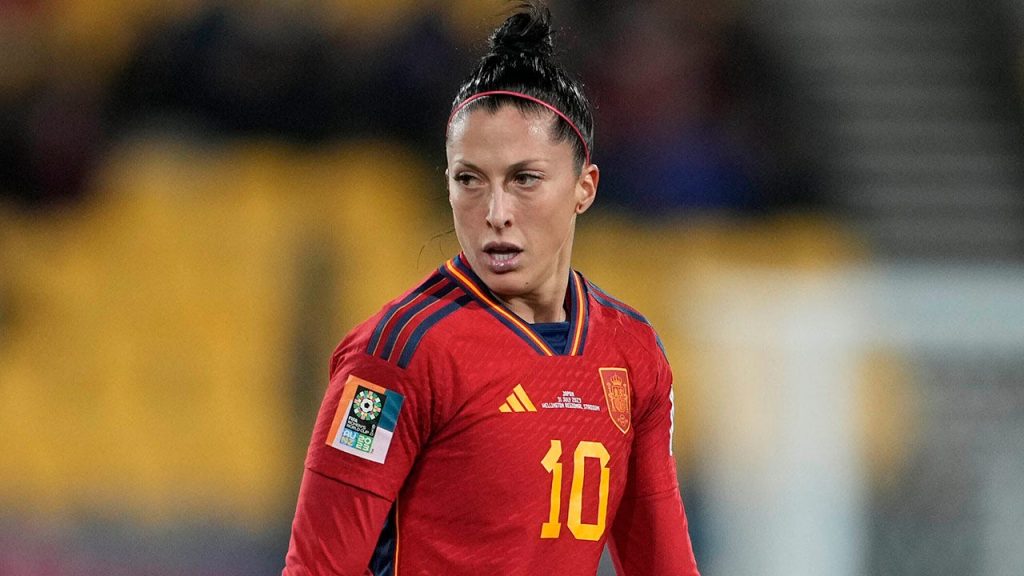The 2023 FIFA Women’s World Cup, a tournament meant to celebrate the pinnacle of women’s football, was unfortunately marred by a controversy that overshadowed Spain’s triumphant victory. The incident, involving a kiss between Spanish football federation president Luis Rubiales and player Jenni Hermoso during the post-match celebrations, ignited a global debate on consent, sexism, and the abuse of power within the sporting world. Hermoso’s court testimony painted a starkly different picture from Rubiales’s narrative, further complicating the case and intensifying the international scrutiny surrounding the incident. The repercussions extended beyond the individuals involved, impacting the Spanish national team, the football federation, and sparking wider conversations about gender equality in sports.
Jenni Hermoso, a key player in Spain’s World Cup victory, delivered powerful testimony in a Madrid court, refuting Rubiales’s claims of a consensual kiss. She described the kiss as a disrespectful act that tainted the joy of her team’s historic achievement. Hermoso’s assertion that she did not hear or understand any request for a kiss from Rubiales directly contradicted his version of events, which portrayed the kiss as a mutually agreed-upon celebratory gesture. This conflicting testimony formed the crux of the legal battle, with Hermoso seeking justice for what she perceived as a violation of her personal space and dignity. Her testimony underscores the importance of believing survivors and acknowledging the power dynamics that can often silence victims of such incidents.
Luis Rubiales, the former president of the Royal Spanish Football Federation (RFEF), faced accusations of sexual assault and coercion stemming from the kiss. He maintained his innocence, insisting the kiss was consensual and born out of a shared moment of jubilation. Rubiales’s defense hinged on the claim that Hermoso had lifted him up in celebration, prompting him to ask for a “little kiss,” to which he alleged she agreed. This narrative, however, was directly challenged by Hermoso’s testimony, leaving the court to determine the veracity of the conflicting accounts. The case highlights the complexities of consent and the challenges of proving non-consensual acts, particularly in high-pressure, emotionally charged situations.
The legal proceedings against Rubiales carried significant potential penalties, including a prison sentence and substantial financial repercussions. Prosecutors, along with Hermoso and the Spanish players’ association, sought a two-and-a-half-year prison term, a hefty fine, and a lifetime ban from holding sports official positions. The severity of the requested punishment reflected the gravity of the allegations and the broader implications for the sporting world. A guilty verdict could set a precedent for holding individuals in positions of power accountable for their actions, particularly regarding inappropriate behavior towards athletes.
The trial extended beyond Rubiales to encompass other officials within the Spanish football federation. Former coach Jorge Vilda, former sports director Albert Luque, and former marketing head Rubén Rivera were accused of pressuring Hermoso to publicly defend Rubiales after the incident. These allegations suggest a coordinated effort to protect Rubiales and potentially silence Hermoso, adding another layer of complexity to the case. The involvement of multiple officials raises concerns about a culture of complicity within the federation and the potential for systemic issues related to gender equality and athlete protection.
The fallout from the incident forced Rubiales’s resignation from his position as president of the RFEF, despite his initial defiant stance and accusations of a “witch hunt” by “false feminists.” His resignation came amidst mounting pressure from within the football community and beyond, highlighting the growing intolerance for such behavior in sports. FIFA, the international governing body of football, also imposed a three-month suspension on Rubiales, further demonstrating the seriousness with which the incident was viewed globally. The case prompted a broader discussion about the need for cultural change within sports organizations to ensure a safe and respectful environment for all participants. Hermoso’s experience, meanwhile, highlighted the personal toll such incidents can take on individuals, impacting their ability to freely participate in the sport they love.


